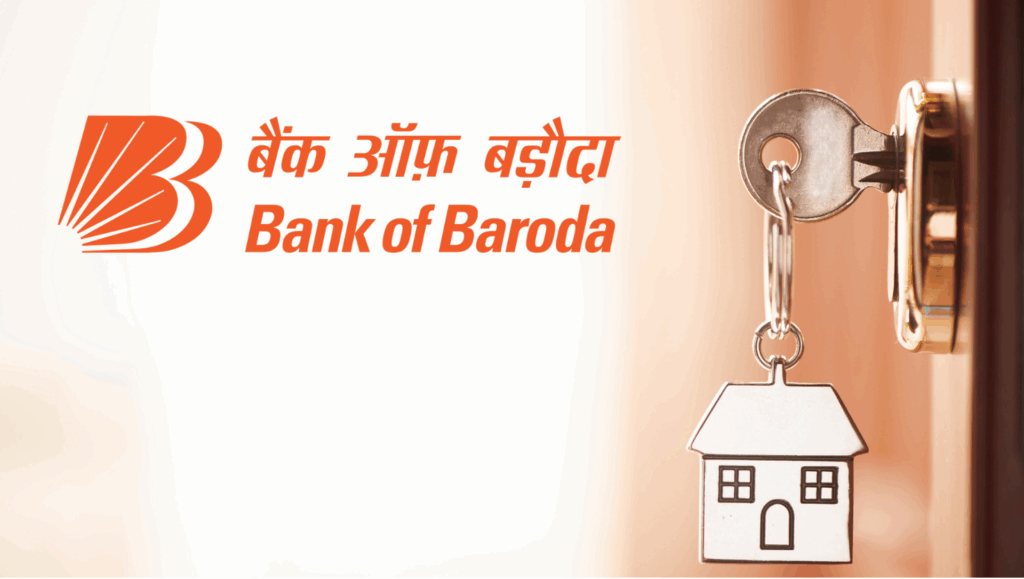
“Struggling with paying all bills while your wife keeps her salary? Explore financial fairness in Indian marriages, latest data on expense splits, and expert tips to balance responsibilities. Is this arrangement fair? Read insights on managing money conflicts & achieving harmony. “
Financial dynamics in marriages are shifting dramatically. With rising costs of living, increasing inflation, and changing gender roles, couples in India are reevaluating how they manage money. A common concern that surfaces in modern Indian households is the division of financial responsibilities. One question that frequently pops up is: “I pay all the bills while my wife keeps all her money—rent, insurance, groceries, everything. Is that fair?”
The Growing Debate: Financial Roles in Indian Marriages
Marriage in India has traditionally been viewed through a lens of shared responsibilities, often with defined gender roles. Historically, men were the breadwinners, while women managed the household. However, with more women entering the workforce—contributing to a 43% female labour force participation rate in urban India as per the Periodic Labour Force Survey (PLFS) 2023-24—these dynamics are changing.
Despite this shift, many Indian couples still grapple with unequal financial contributions. A survey by India Today revealed that 62% of urban Indian men feel they shoulder the majority of household expenses, even when their spouses earn a substantial income. This sentiment echoes the question: Is it fair for one partner to pay all the bills while the other keeps their earnings?
The scenario becomes even more complex when we factor in rising living costs. According to the National Statistical Office (NSO), the Consumer Price Index (CPI) in India rose by 5.8% in 2024, driving up expenses like rent, insurance, and utilities. For a couple in a metro city like Chennai or Hyderabad, this could mean monthly expenses exceeding ₹50,000–₹80,000, depending on lifestyle and family size.
Why Does This Happen? Understanding the Context
Before jumping to conclusions about fairness, let’s explore why such financial arrangements exist:
In many Indian households, men are still seen as the primary providers. Even when both spouses work, societal norms might dictate that the husband covers major expenses like rent and insurance. A 2023 study by the Centre for Social Research found that 58% of Indian women feel societal pressure to let their husbands handle “big-ticket” expenses, even if they earn equally or more.
2. Income Disparity
Income gaps can naturally lead to uneven contributions. The Gender Pay Gap Report 2024 by Monster India highlights that women earn 19% less than men on average across industries. If a husband earns ₹1,00,000 monthly while his wife earns ₹60,000, it might seem logical for him to take on more expenses—sometimes all of them.
3. Personal Choices
Some couples mutually agree on this arrangement. The wife might save her income for future goals like buying a house, funding children’s education, or supporting her parents. A 2024 Economic Times poll showed that 35% of Indian couples intentionally pool one partner’s income for savings while the other covers daily costs.
4. Lack of Communication
Money remains a taboo topic in many Indian marriages. A Times of India survey found that 47% of couples avoid discussing finances openly, leading to assumptions and imbalances—like one partner paying all bills while the other retains their earnings.
Is It Fair? A Closer Look at the Numbers
To assess fairness, let’s crunch some numbers with a hypothetical yet realistic scenario:
- Monthly Household Expenses (Metro City):
- Rent: ₹25,000
- Insurance (health + car): ₹5,000
- Utilities (electricity, water, internet): ₹4,000
- Groceries: ₹8,000
- Miscellaneous (travel, subscriptions): ₹3,000
- Total: ₹45,000
- Couple’s Income:
- Husband: ₹80,000/month
- Wife: ₹60,000/month
- Combined Income: ₹1,40,000/month
If the husband pays all ₹45,000 in bills, he’s left with ₹35,000, while the wife keeps her entire ₹60,000. This leaves her with nearly double his disposable income, despite earning less. On the surface, this seems unfair—but fairness isn’t just about numbers. It’s about mutual goals, transparency, and equity.
The Emotional and Practical Toll
Financial imbalances can strain relationships. A study by Relationship India found that 29% of urban couples cited money disputes as a leading cause of marital stress. When one partner feels overburdened—like paying all bills while the other saves—it can breed resentment.
Practically, it also limits the paying partner’s financial freedom. With India’s inflation rate hovering at 5-6% (RBI), disposable income is crucial for personal growth, investments, or emergencies. If you’re a husband covering rent, insurance, and more, while your wife keeps her earnings, you might feel trapped in a cycle of obligation.
What Does Fairness Look Like? Exploring Solutions
Fairness in financial contributions doesn’t mean a rigid 50-50 split. It’s about what works for both partners. Here are some modern, data-backed approaches Indian couples can adopt:
1. Proportional Contribution
Divide expenses based on income percentage. In our example:
- Husband’s share of income: 57% (₹80,000/₹1,40,000)
- Wife’s share: 43% (₹60,000/₹1,40,000)
- Bills split: Husband pays ₹25,650 (57% of ₹45,000), Wife pays ₹19,350 (43%).
This ensures both contribute equitably, leaving room for personal savings.
2. Split Specific Expenses
Assign bills based on preference or capacity:
- Husband: Rent (₹25,000), Insurance (₹5,000)
- Wife: Utilities (₹4,000), Groceries (₹8,000), Miscellaneous (₹3,000) This balances the load and fosters teamwork.
3. Joint Account for Shared Goals
Pool a portion of both incomes into a joint account for household expenses and savings. A Livemint report found that 41% of Indian couples using joint accounts reported higher financial satisfaction. For example:
- Both contribute ₹25,000 monthly to cover ₹45,000 in bills, saving the rest individually.
4. Full Transparency
Discuss finances openly. Set clear expectations about who pays what and why. If the wife keeps her money for a family goal (e.g., a ₹50 lakh home down payment in 5 years), it’s a joint win—not a personal hoard.
Latest Trends in Money Management for Indian Couples
Indian couples are adapting to financial challenges with innovative strategies:
- Digital Budgeting Tools: Apps like Walnut and Moneycontrol report a 38% increase in usage among couples in 2024-25, helping track expenses and split bills seamlessly.
- Rise of Dual-Income Households: The PLFS 2023-24 notes that 54% of urban Indian households now have two earning members, up from 48% in 2020.
- Pre-Nuptial Agreements: Once rare, pre-nups are gaining traction, with a 15% rise in registrations in metro cities (LiveLaw), clarifying financial roles upfront.
Cultural Nuances: The Indian Perspective
In India, money isn’t just about numbers—it’s tied to family, duty, and legacy. A husband paying all bills might feel it’s his dharma (duty), while a wife saving her income might see it as securing her children’s future. However, as nuclear families grow (68% of urban households, Census 2021), and women’s financial independence rises, these norms are being questioned.
Take Priya and Rohan, a Bangalore-based IT couple I interviewed. Rohan paid all bills (₹60,000/month) while Priya saved her ₹70,000 salary for their daughter’s education. “It felt unfair at first,” Rohan admitted, “but once we aligned on our goals, it made sense.” Their story reflects a shift toward purpose-driven financial splits.
Expert Opinions and Legal Insights
Financial planner Neha Gupta, based in Delhi, says, “Fairness depends on intent. If one partner pays all bills but both benefit—like through savings for a home—it’s a partnership. If it’s one-sided with no shared vision, it’s exploitation.”
Legally, India doesn’t mandate equal financial contributions in marriage unless specified in a pre-nup. Under the Hindu Marriage Act, 1955, both spouses are entitled to maintenance post-divorce, based on income and lifestyle—hinting at an expectation of mutual support during marriage too.
How to Address the Issue: A Step-by-Step Guide
If you’re in a “I pay all the bills” situation, here’s how to navigate it:
- Assess Your Finances: List all expenses and incomes. Use tools like Excel or apps like Splitwise.
- Talk It Out: Schedule a calm, non-judgmental discussion with your spouse.
- Define Goals: Agree on short-term (e.g., rent) and long-term (e.g., investments) priorities.
- Choose a Model: Pick a split—proportional, specific bills, or joint account—that suits you.
- Review Regularly: Revisit the arrangement every 6 months, especially with income or expense changes.
Fairness Is What You Make It
So, is it fair that you pay all the bills while your wife keeps her money? It depends. If it’s a mutual decision with a shared purpose—like saving for a home in Gurgaon or funding a child’s IIT education—it can be equitable. But if it’s unspoken, unequal, and draining, it’s time for a change.
As India’s economy grows and dual-income households become the norm, financial fairness in marriage is less about tradition and more about partnership. Communicate, calculate, and collaborate. After all, a marriage thrives when both partners feel valued—not just financially, but emotionally too.
-

The Supabase India Ban Explained: Who’s Affected, Why It Happened, and What Comes Next
-

Geopolitical Shock: Bitcoin Tumbles Under $64K Following US-Israel Military Strike on Iran
-

New EPFO Rule 2026: You Can Now Withdraw 100% of Your PF Balance Without Resigning — Here’s How
-

Is Your Money Safe in Fino Payments Bank After CEO Rishi Gupta’s Shocking Arrest?




























